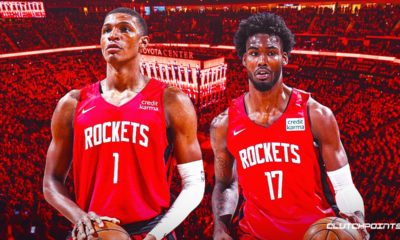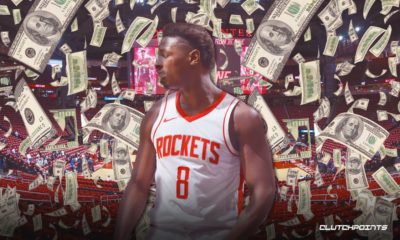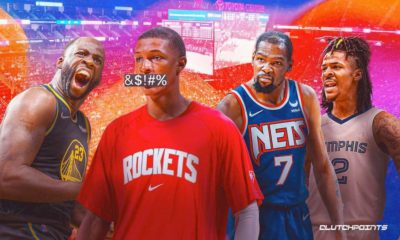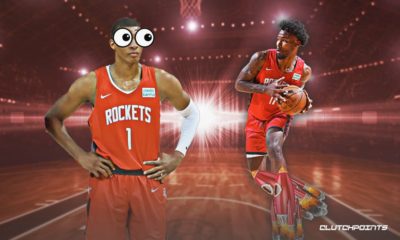Rockets
Who’s to blame for the Rockets’ early struggles?
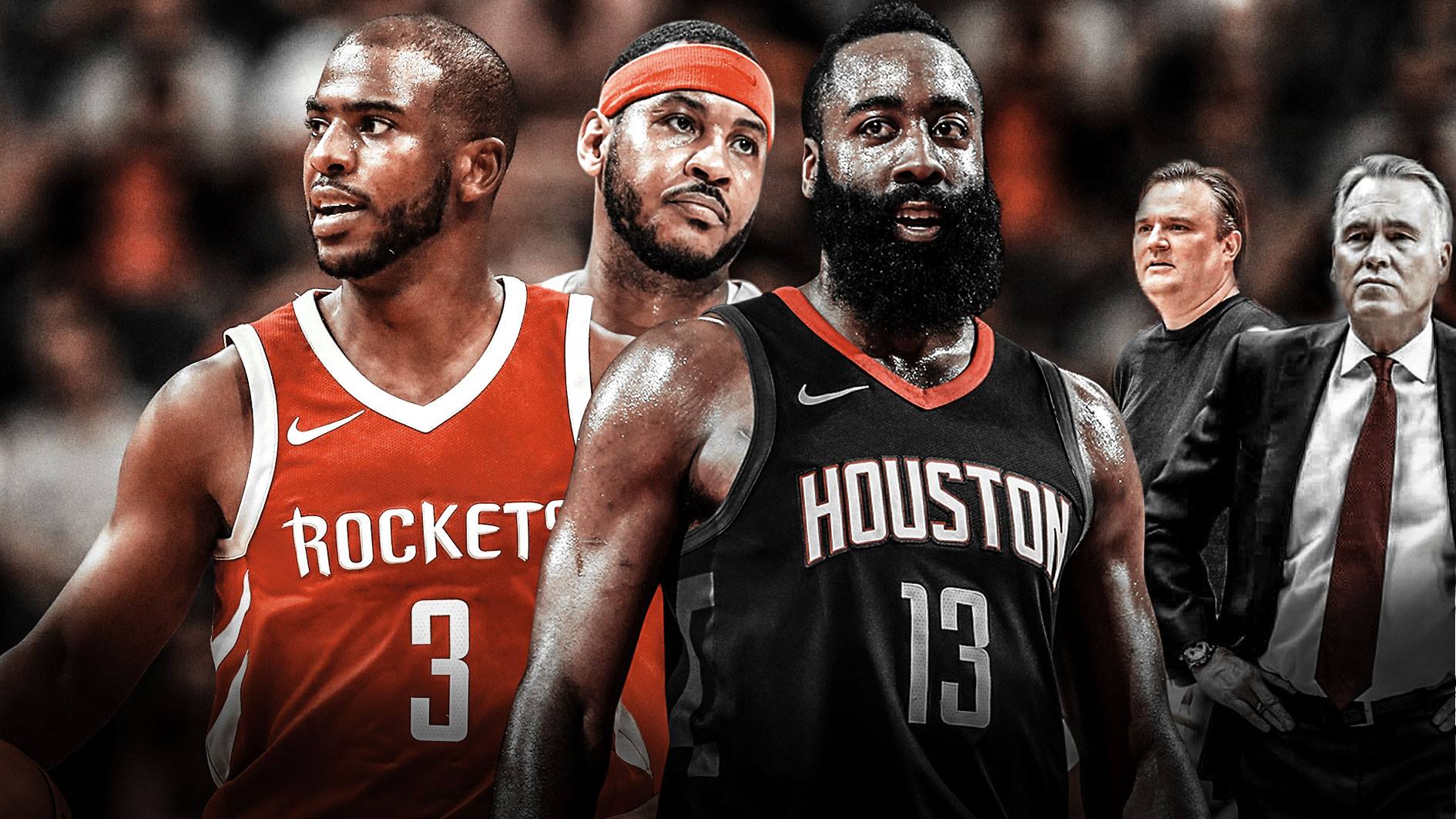
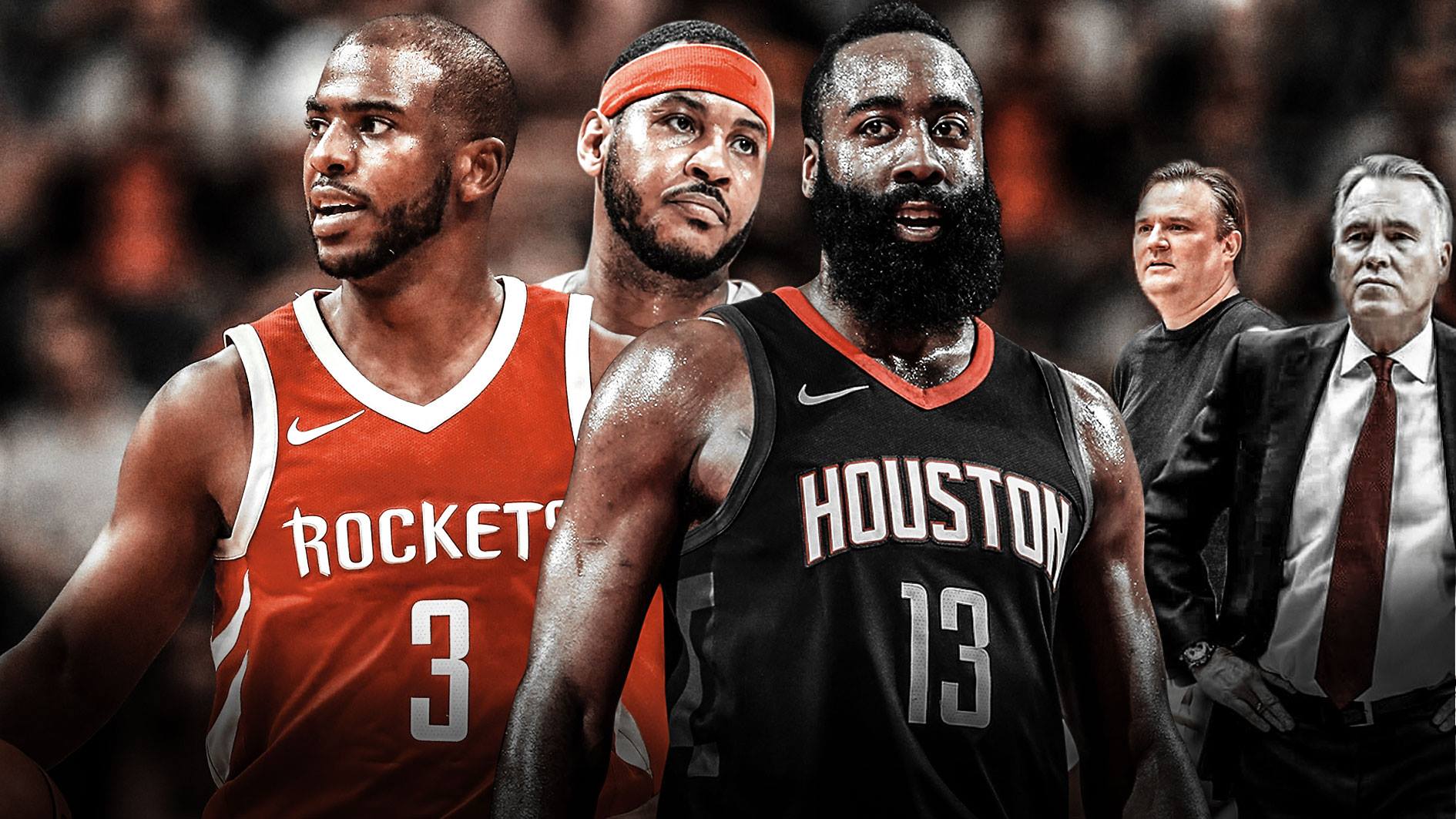
The Houston Rockets have gotten off to a disappointing 11-13 start to the season after winning an NBA-best 65 games in 2017-18, giving fans high hopes of a similar campaign this time around. The Rockets have struggled to take off and after two straight losses, they have now dropped six of their last eight contests (five of them on the road), making this a time for concern as they approach the end of this calendar year.
So who is to blame for this horrid start to the season?
When assessing team-wide struggles, the blame often goes to the players, and then to the coach — but given this team’s well-oiled performance just months ago in the Western Conference playoffs, there isn’t a more obvious culprit than general manager Daryl Morey.
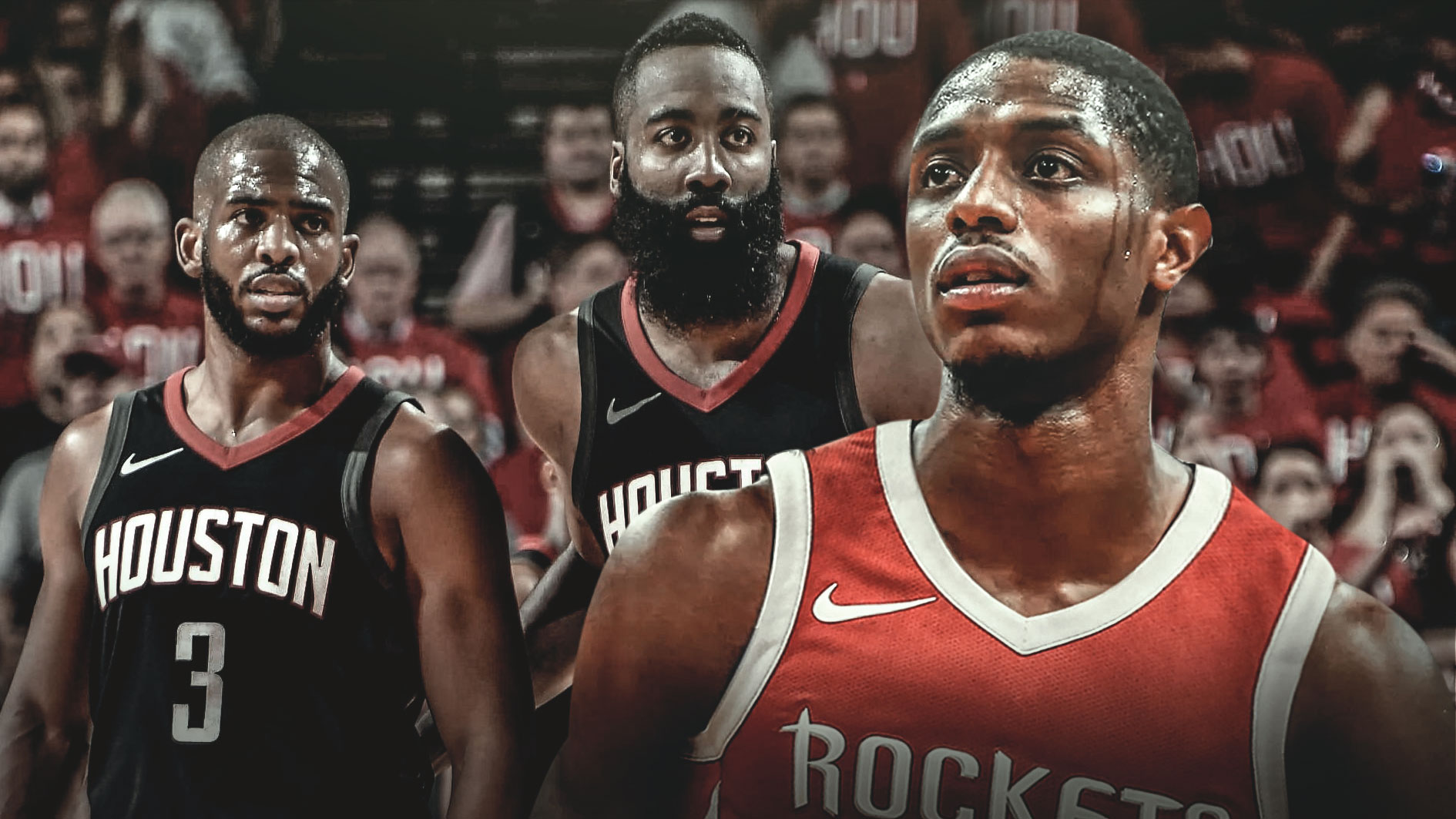
The once-lauded offensive genius with his theorem of advanced analytics and offensive efficiency is now scratching his head looking for answers, ones that have proved difficult for several reasons.
A pile of money that was misspent:
The Rockets were mired in a huge dilemma from the time the closing whistle saw a disappointing end of the season with two straight losses to the Golden State Warriors, leaving them a game shy of the NBA Finals.
Chris Paul and Clint Capela became the two priorities for the franchise moving forward and their signings would obviously handicap their ability to sign other important cogs like Trevor Ariza, who wasted no time in signing a one-year, $15 million deal with the Phoenix Suns in the opening hour of free agency.
Paul received a four-year, $160 million max deal — one that will have him earn a whopping $44.2 million at 37 years old, as he’s highly unlikely to opt out of it at that stage of his career.
Having given Paul the deal of his lifetime, despite the myriad of injuries that have plagued him through the years, the Rockets focused their attention to Capela, who commanded Steven Adams money (four years, $100 million), but wound up with less, a five-year, $90 million extension.
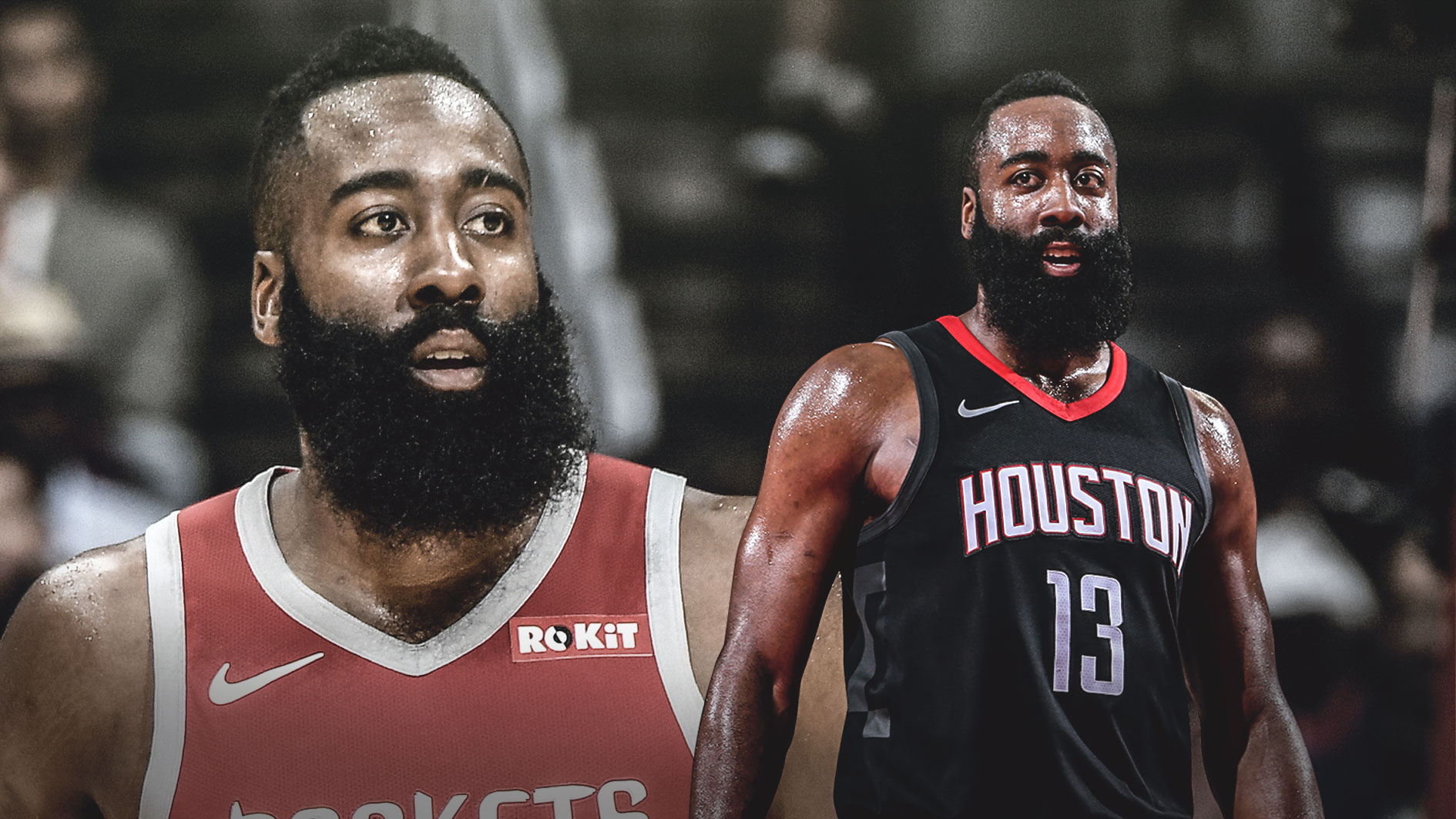
By then, the Rockets had already lost another defensive presence in Luc Mbah A Moute, who signed back with his old team, the L.A. Clippers.
A horrid free agency period:
Morey’s insistence in stockpiling talent had the Rockets trade their underused marksman Ryan Anderson to the Phoenix Suns for an injured Brandon Knight and a problematic Marquese Chriss — two players that have yet to have an inch of impact in this season.
Knight is approaching a return from injury, as he is slated to near the end of his rehab process after tearing the ACL in his left knee in March 2017 as a member of the Suns. Chriss has racked up more DNPs this season than kids gotten candy on Halloween, as the 21-year-old has seen only a combined 53 minutes this young season.
Enter the pursuit of Carmelo Anthony, who Morey chased with fervor, arrogantly thinking the same formula that didn’t work with the Oklahoma City Thunder for an entire season would magically work in Houston, just because it was Chris Paul darting passes his way instead of Russell Westbrook.
CP
That same arrogance saw him forced to end Anthony’s tenure with the Rockets, as coach Mike D’Antoni was tired of tinkering with lineups in hopes to adhere him to the system.
Melo was the singularly notable free agency score the Rockets acquired this offseason, and the very gamble was crumbling right in front of Morey’s eyes — given that things he already knew to be true were playing out on the court.
None of Anthony’s outings was more obvious than his 1-of-11 shooting night against his former team, a game that spelled the end of his short-lived tenure in Clutch City.
By then, the Rockets’ biggest free agency signing had already proved a bust — and James Ennis was the lone capable contributor of them all, as Michael Carter-Williams clearly struggled to fit in D’Antoni’s offense.
Bad decisions could haunt this team for the long run:
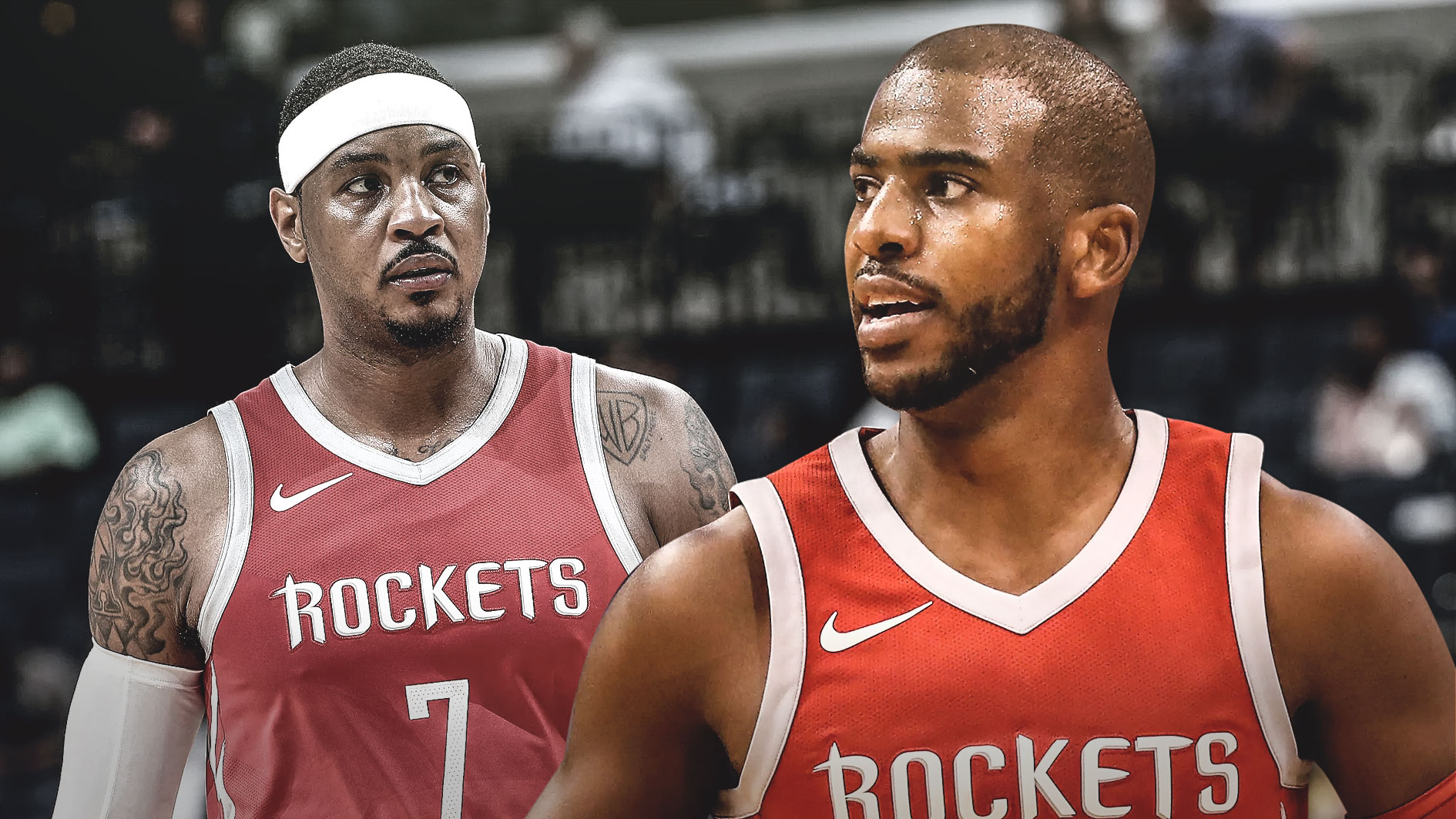
CP
Morey rolled the dice with the long-term signings of Chris Paul and Clint Capela, having already established a pillar for the organization by giving James Harden a supermax extension.
The gambling gods were not kind to the energetic GM, as Paul will command a hefty paycheck well into the end of his career, with his workload and production decreasing year after year. That, in a nutshell, is the definition of a bad deal.
But it only went from bad to worse, as the Rockets desperately tried to keep the core of this team together, giving in to a bonus-filled contract extension for Capela, after having his best year under D’Antoni’s opportunistic offensive system.
Fast-forward to the 2021-22 season and Houston will have a whopping $106.6 million tied up between Harden, Paul and Capela — good for a massive 80.72 percent of the projected cap, according to Spotrac.
Bad deals are the recipe for a franchise’s demise, and no team in the NBA has made more painful long-term mistakes than the Rockets under Morey’s ultra-aggressive, high-spending regime.
In short, Morey has quickly gone from earning his first Executive of the Year honor to easily making some of the worst decisions for the franchise at the flip of a page — decisions that could haunt this team for the long haul.
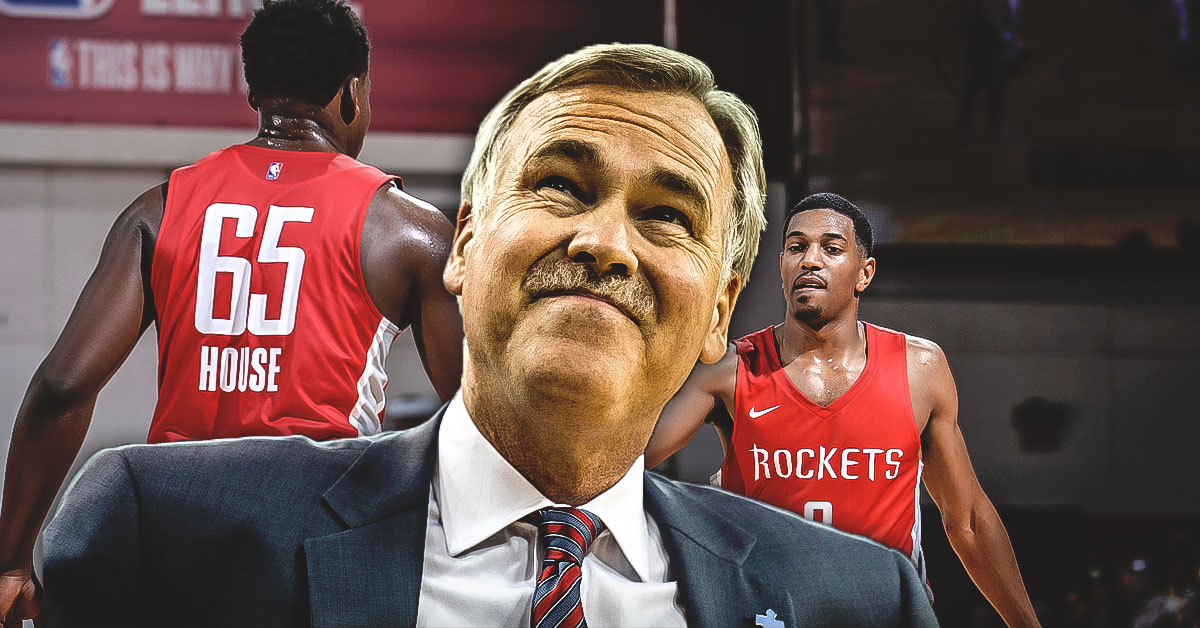
CP
A theory based on a poor man’s best effort:
Daryl Morey’s famous philosophy of taking abundant threes, shots close to the rim and getting to the foul line worked marvelously during the Rockets’ most successful season in recent memory, as they led the league in 3-pointers made per game in 2017-18 with 15.3 per game, despite being a middle-of-the-pack team in terms of efficiency (ranked 14th in the league in 3-point percentage at 36.2 percent).
Yet the law of averages has caught up with Morey and his Rockets, who attempt an eerily similar amount of trifectas (42.3 per game in 2017-18, 42.0 this season), yet rank as the seventh-worst 3-point shooting team in the league at 33.8 percent.
While Morey’s theory was in part borrowed from the bombastic success of the 2015-16 Golden State Warriors, who made and attempted the most 3-pointers in that season, connecting at a ridiculous 41.6 percent efficiency; Morey’s biggest mistake was carrying that very same vision with non-elite shooters to execute it.
While the Warriors boast two perennial 40-percent shooters in Stephen Curry and Klay Thompson (both have finished each season in the league shooting 40 percent or better), Morey has given good, but not great shooters the green light to take threes to their hearts’ content.
James Harden had his best 3-point shooting season right before leaving Oklahoma City, connecting on 39 percent of his shots mostly coming off the bench. Unlike Harden, Chris Paul reached the 40 percentile twice in his career before joining the Rockets, but he was more of an opportunistic 3-point shooter than one aggressively looking for it, making most of his damage from the mid-range game.
Turning Paul into a volume shooter hasn’t helped matters, as he shot only 38 percent last season and has mustered a pedestrian 34.5 percent this season.
The same could be said about Eric Gordon, who posted an impressive 44.8 percent from beyond the arc in 2014-15 as a member of the New Orleans Pelicans, but has only seen a decrease in his acumen from distance after every season of volume shooting under Morey’s offensive philosophy, going from 37.2 percent in 2016-17, to 35.9 percent last season and 31.1 percent through these nightmarish first 24 games of 2018-19.
A happy-go-lucky trigger is only as good as the person holding the rifle — and in this case, Morey erroneously tried to make marksmen of opportunistic shooters, who are now taking the bulk of the shots from distance and struggling mightily at it.
All in all, the Rockets’ struggles could be easily traced back to Morey’s poor decisions. A bunch that might have fortuitously worked out for the short-term, but are now showing its ugly face, further compounding into a team that most thought was a sure-fire championship contender.
The post Who’s to blame for the Rockets’ early struggles? appeared first on ClutchPoints.






